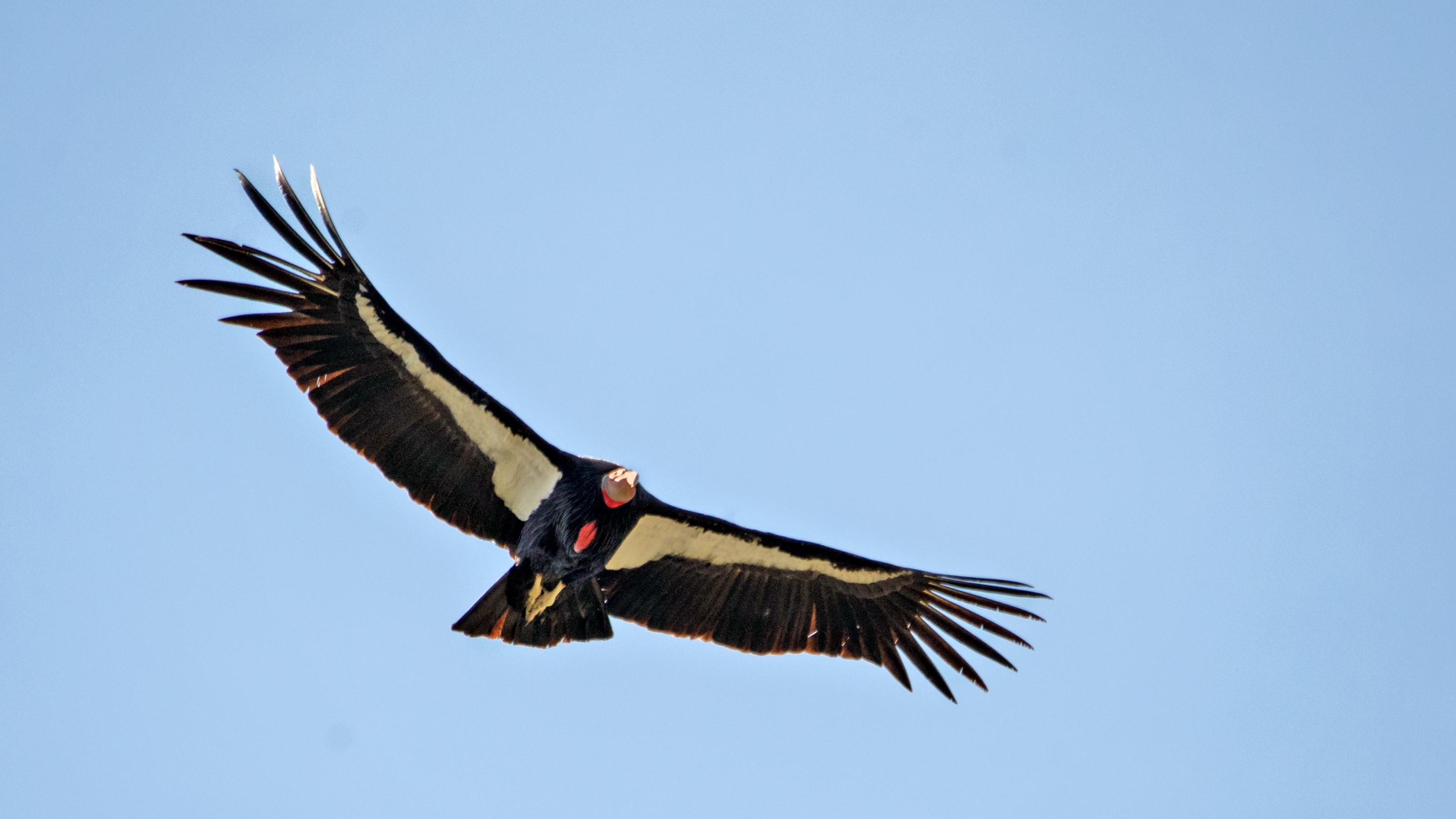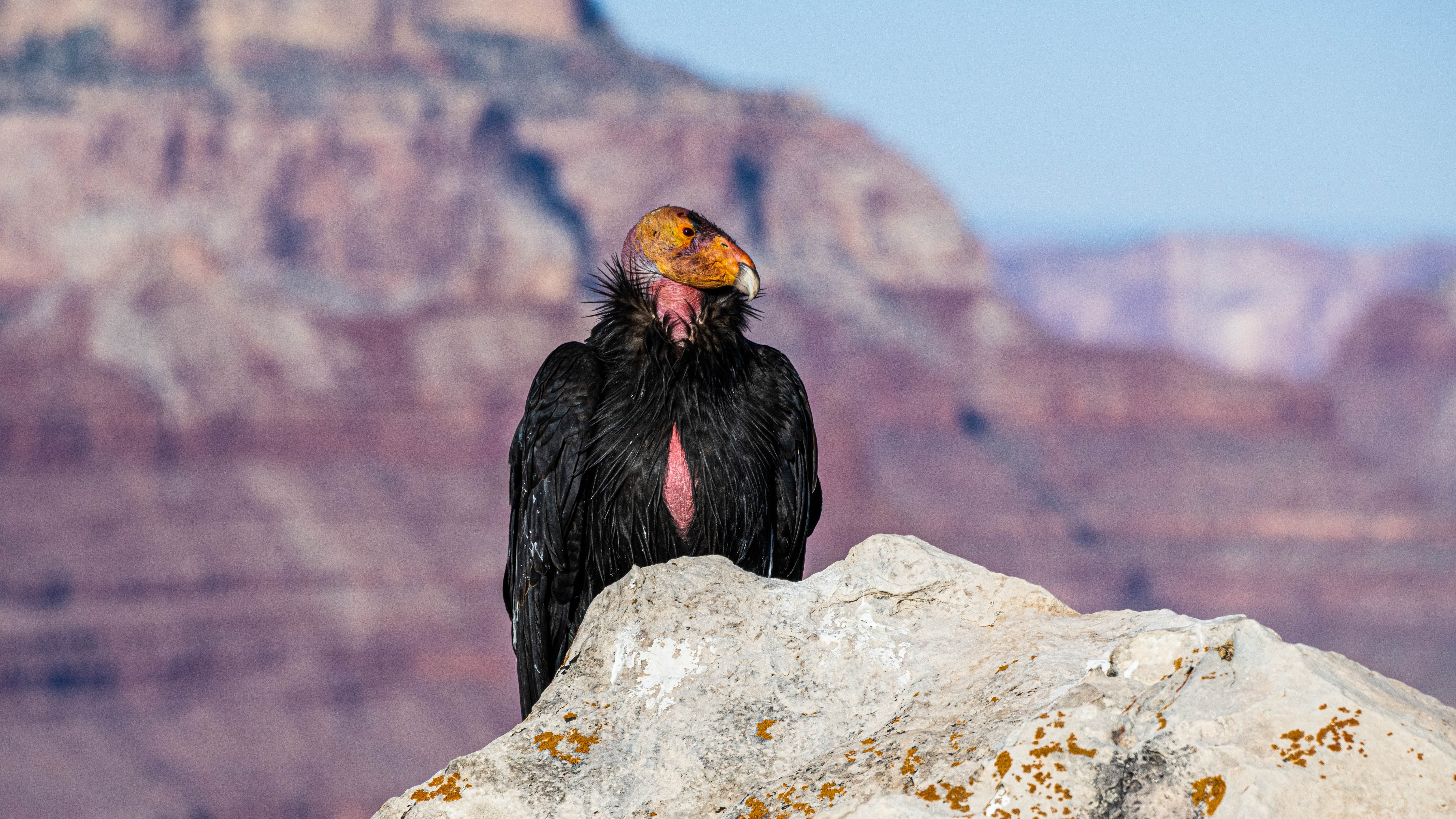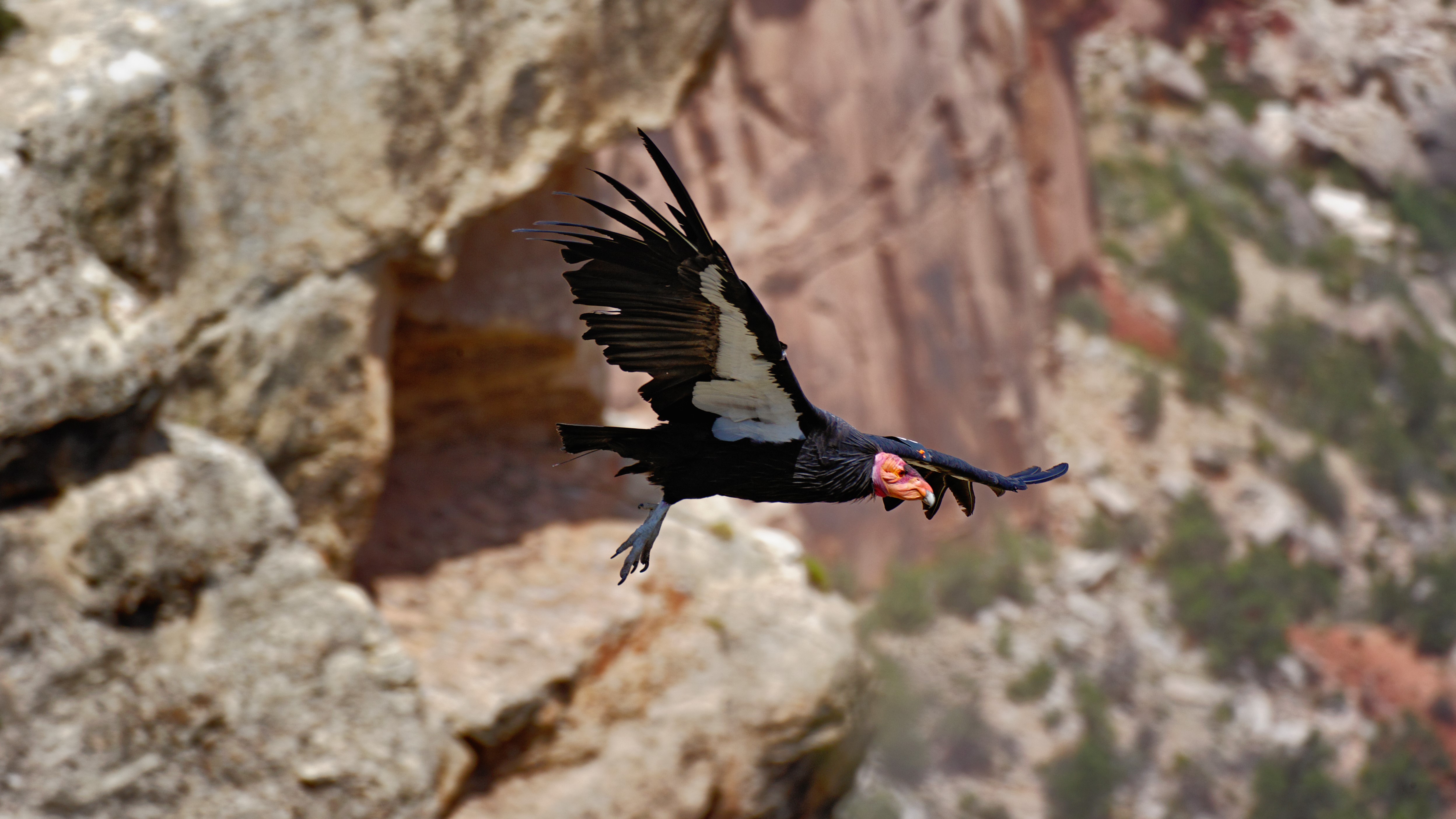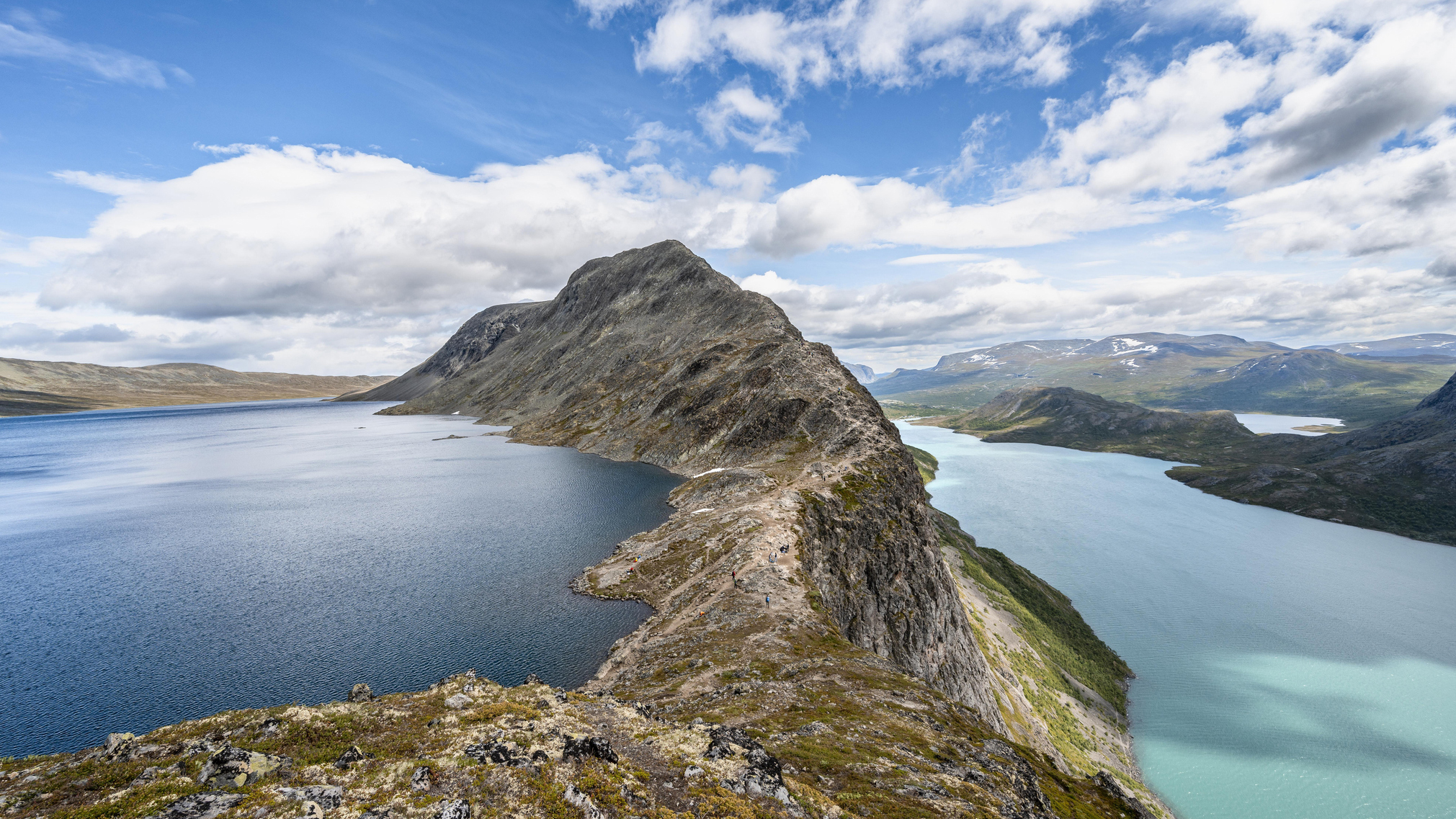Where can I see a California condor in the wild?
Brought back from near-extinction, these might birds now soar the skies of California, Arizona and Utah

For most bird watchers, there are few winged treasures more greatly prized than the mighty California condor. These giant birds were nearly extinct only 40 years ago, but extensive conservation efforts have boosted their population and today keen wildlife fans can travel out west in the fall to catch a glimpse of them floating through the skies. Read on to discover what makes the California condor so special, and how you can see one in the wild.
What is a California condor?
A California condor is a New World vulture and is the largest North American land bird with a wingspan of nearly 10 feet. These carnivorous scavengers have black plumage with patches of white on the underside of their wings and bald heads which are yellow or orange in mating adults. California condors can live for up to 60 years in rocky shrubland, coniferous forest and oak savannah where they nest in cliffs and tall trees. Because California condor’s don’t have a syrinx, the vocal organ of birds, they don’t have a call but rather they hiss and grunt.

Why are the California condors endangered?
The population of California condors dwindled dramatically in the 20th century due to poaching, loss of habitat and lead poisoning, which is common from bullets in meat that they scavenge. By 1987, the US government set a conservation plan in action to capture all remaining condors in the wild. Just 27 birds were captured and placed in San Diego and Los Angeles zoos.
Today, most California condors are bred in captivity, then released into the wild, however they are starting to nest in the wild. California condors lay just one egg at a time, so restoring wild nesting will take time. They now number more than 500, and remain a critically endangered species.
Are California condors aggressive?
It’s always good practice to ask questions about an animal’s behavior, especially when the beast is as sizable as a condor. Condors have been observed to be aggressive towards other predators like golden eagles as well as ravens near their nests, but they don’t pose any risk to humans unless you’re planning on climbing up to one of their nests. Practice wildlife safety and enjoy these birds from afar.

Where is the best place to see condors in the wild?
California condors are among the rarest birds in the world and to see one in real life is an extremely special experience. Wild California condors glide through the skies above California, Arizona and Utah, however because they are so few in number, your best chances of seeing one are to position yourself near canyons and cliffs near a release site in September and October. The following are some of the best sites to see a California condor:
- Pinnacles National Park, CA
- Grand Canyon National Park, AZ
- Zion National Park, UT
- Redwoods National Park, CA
- Big Sur, CA
- Bitter Creek National Wildlife Refuge, Kern County, CA
- Mt. Pinos-Frazier Park, Los Padres National Forest, CA
- Hopper Mountain National Wildlife Refuge, Fillmore area, CA
How to view a California condor
If you’re heading to one of the above locations in the hopes of seeing a condor, it’s a good idea not to get your hopes up too high as sightings are not guaranteed. When you arrive, speak to a park ranger about optimal viewing times and sights.
Advnture Newsletter
All the latest inspiration, tips and guides to help you plan your next Advnture!
Getting to a good viewing sight might involve strenuous hiking and the temperatures can still be warm in the fall. Dress in breathable hiking layers, carry a water bottle, wear proper footwear such as hiking boots and practice proper sun protection. Finally, don’t forget to bring your binoculars, so you can get a proper look at these soaring giants, and your camera to capture your memories.
Julia Clarke is a staff writer for Advnture.com and the author of the book Restorative Yoga for Beginners. She loves to explore mountains on foot, bike, skis and belay and then recover on the the yoga mat. Julia graduated with a degree in journalism in 2004 and spent eight years working as a radio presenter in Kansas City, Vermont, Boston and New York City before discovering the joys of the Rocky Mountains. She then detoured west to Colorado and enjoyed 11 years teaching yoga in Vail before returning to her hometown of Glasgow, Scotland in 2020 to focus on family and writing.

